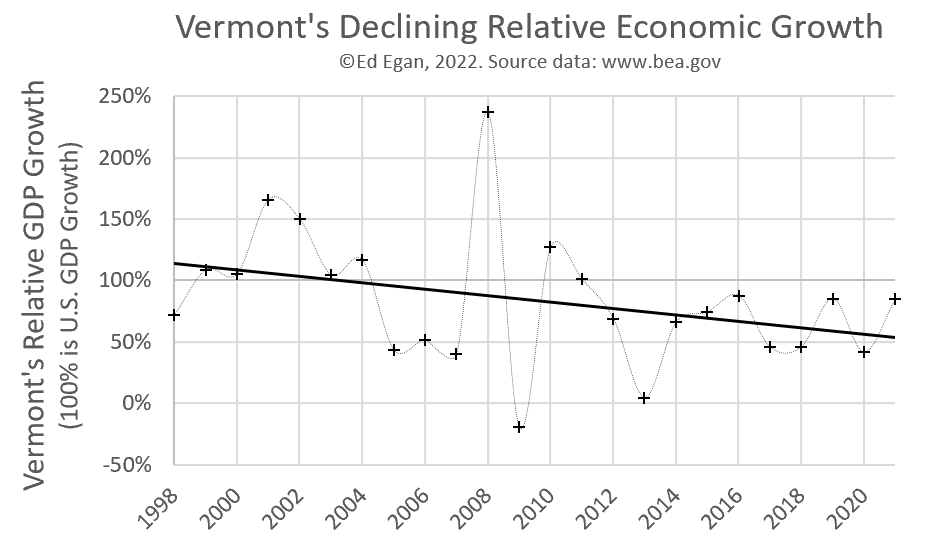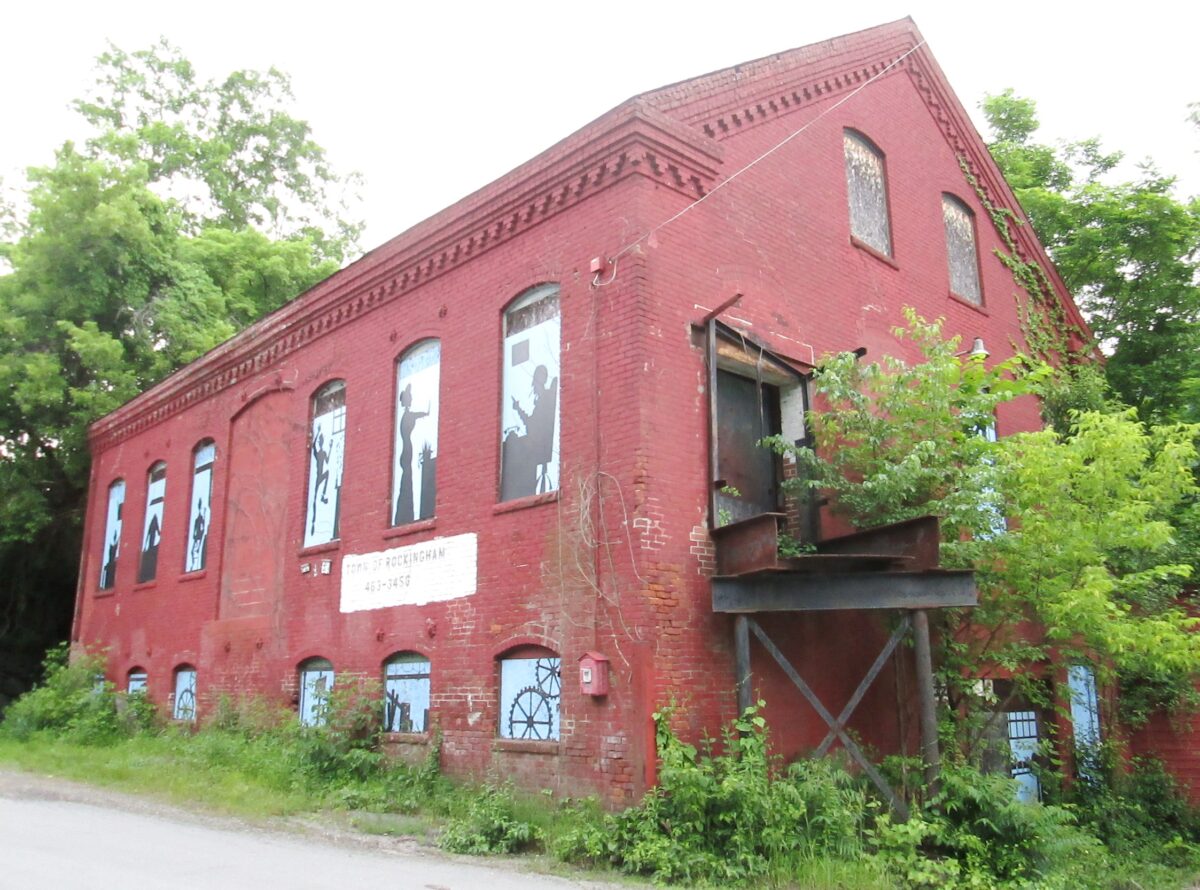Small, Dwindling, and Dead Last
Vermont has pockets of prosperous haves in amongst fields of withering have-nots. Overall, though, the state’s economy has foundered for a long time. If you order America’s states on almost any economic measure, including those per capita or relative to the U.S. average, you’ll find Vermont near the bottom.
For Gross Domestic Product (GDP), the foremost of economic measures, data from the U.S. Bureau of Economic Analysis shows Vermont ranked 51st – dead last – for 18 years now. (This will change in 2027 when Wyoming, which has been contracting almost continuously since 2008, will take the trophy as America’s smallest economy.) Vermont’s small and dwindling population barely helps its GDP per capita, which is ranked 36th and falling. A decade ago, Vermont produced more per person than Utah; today, Vermont is being overtaken in per capita production by Missouri.
Bad and Low-Quality Policy

Economists describe a part of Vermont’s woes as “structural.” The Green Mountain state has a small population, is predominantly rural, has no seaport or major commercial transport route, isn’t endowed with oil and gas or mineral wealth, and so on. No policy can change these things, but none of these constraints are fatal in an innovation economy.
A structural disadvantage makes adopting good, high-quality policies to grow Vermont’s economy all the more crucial. Unfortunately, the state’s current policies mostly don’t foster development and are almost always poorly designed and implemented. Bad policy is a crucial part of why Vermont languishes at the bottom of startup rankings.
Solving Vermont’s Declining Economy
Vermont has teetered on the edge of permanent recession for a decade… A data-driven, evidence-based policy process can maximize growth.
Over the last two decades, Vermont grew 2.6% slower than America as a whole and had the 10th worst long-term growth rate among the American states. This crisis long predates the pandemic, which caused a greater contraction in Vermont than in most other states. From 2009 to 2019, the state’s annual growth exceeded inflation by less than one percent: Vermont has teetered on the edge of permanent recession for a decade.
However, there is a solution to Vermont’s declining economy: A data-driven, evidence-based policy process can maximize growth. Simply put, Vermont should use economic science to evaluate policies and choose the best. However, there are big challenges in implementing this kind of policy process in the Green Mountain State.
Taking on Economic Corruption
Vermont has a long history of not doing the math. So, when Vermonters start using economics to analyze policy, they will find glaring past mistakes. Moreover, economic corruption thrives when things aren’t measured and assessed. In 2015, Vermont was ranked 37th and received a D grade for State Integrity; it has made little progress in reform. So, some institutions and individuals have strong incentives to resist changes that bring accountability.
A similar argument applies to Vermont’s policymakers. Some officials have implemented policies that undermine markets, destroy value for Vermonters, or waste taxpayer money. Some legislators have campaigned on or voted to support policies that make Vermont worse off or offer little benefit compared with their cost. And some administrators have ignored or abandoned policies grounded in economic science because their departments cannot understand them. Moreover, policies further from the political middle are less likely to be backed by science, which politicizes science’s application. Vermont would have to rise above the ensuing politics.
Recruiting Economists
Vermont can do the math and grow the pie!
Vermont has limited capabilities to design, implement, and assess policies in a data-driven and evidence-based fashion. None of its legislators or executive officers hold a Ph.D. in economics. Vermont has no Council of Economic Advisors to the Governor nor a Legislative Budget Office ready to analyze data and model solutions. Even the Department of Economic Development and the Vermont Economic Progress Council have no economists.
Fortunately, Vermont doesn’t need to be a policy innovator to improve; it just needs to avoid proven mistakes and embrace well-established best practices. There are enough economists in the state’s colleges and private sector to make a noticeable impact. Many will provide help pro bono, in both main senses of the phrase, and the same changes that reduce economic corruption lower the barriers to their participation. In summary, Vermont can do the math and grow the pie!

